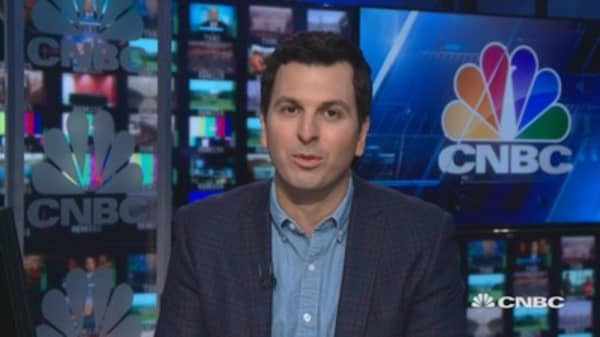Tesla CEO Elon Musk said Wednesday that the company had a clear path to being worth more than Apple one day (though he also said "I could be completely delusional"). Musk has agreed that his company appears overvalued using backward-looking metrics, but has argued that future performance is what drives the stock upward.
"Tesla is absurdly overvalued if based on the past, but that's irrelevant," Musk said on Twitter. "A stock price represents risk-adjusted future cash flows."
In April, AutoNation CEO Mike Jackson said Tesla's high valuation was "either one of the greatest Ponzi schemes of all time or it's gonna work out."
Tesla is many times bigger than the companies that disappeared after the 2000 crash.
It's difficult to compare valuation ratios between industries, but there are no other growth stocks in Tesla's market that are truly comparable. Whether the company meets expectations depends in part on whether it can ramp up production quickly and whether investors will continue to shower the company with cash.
Hedge fund manager David Einhorn said on an earnings call Wednesday that he doesn't believe that Tesla will be able to sell enough Model 3s at a price point that will justify the market's hopes.
"The enthusiasm for Tesla and other bubble basket stocks is reminiscent of the March 2000 dot-com bubble," Einhorn said. "While we don't know exactly when the bubble will pop, it eventually will."
Analysts remain concerned about how fast the company burns through cash, and Bank of America Merrill Lynch said in April that Tesla's acquisition of Solar City puts its "long-term viability" at risk. In an earlier note that month, Barclays analyst Brian Johnson compared Telsa bulls to people who chose the blue pill in "The Matrix" — unwilling to awaken to many of the challenges facing the company.
Tesla posted a wider-than-expected first-quarter loss of $1.33 a share on Wednesday. At the same time, the company beat Wall Street's revenue expectations. Tesla's stock was down 5 percent over the course of trading on Thursday, but gained ground as the week came to a close and was up about 3.4 percent in midday trading Friday.
Correction: Tesla's stock was down 5 percent over the course of trading on Thursday. An earlier version misstated the day.





